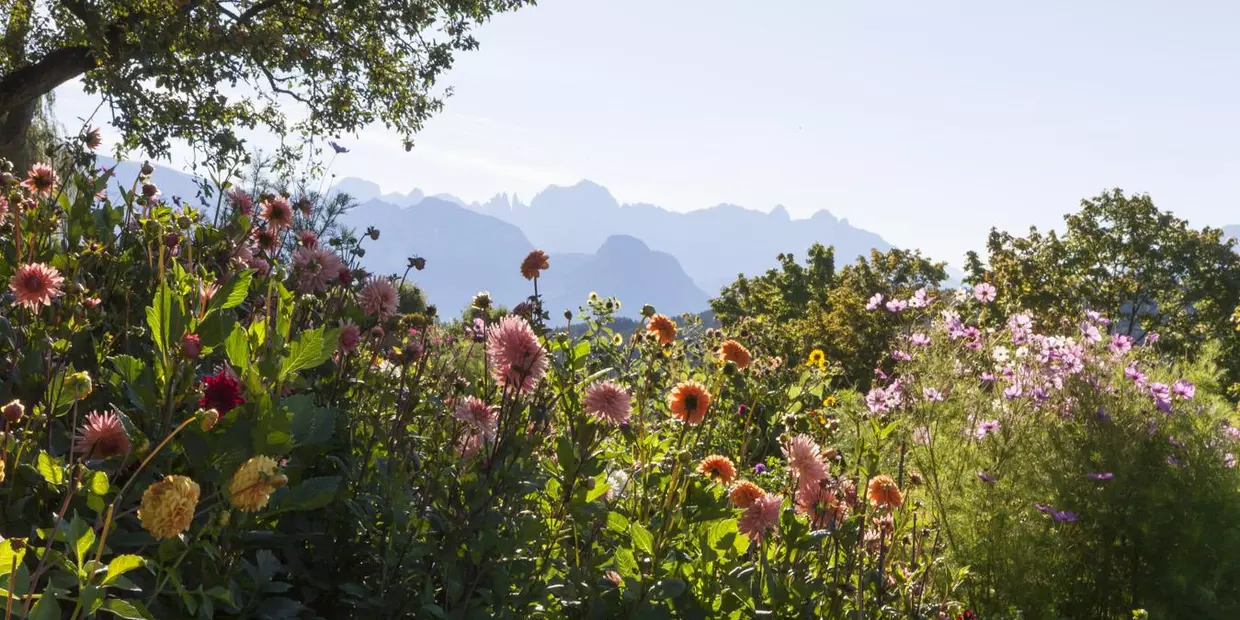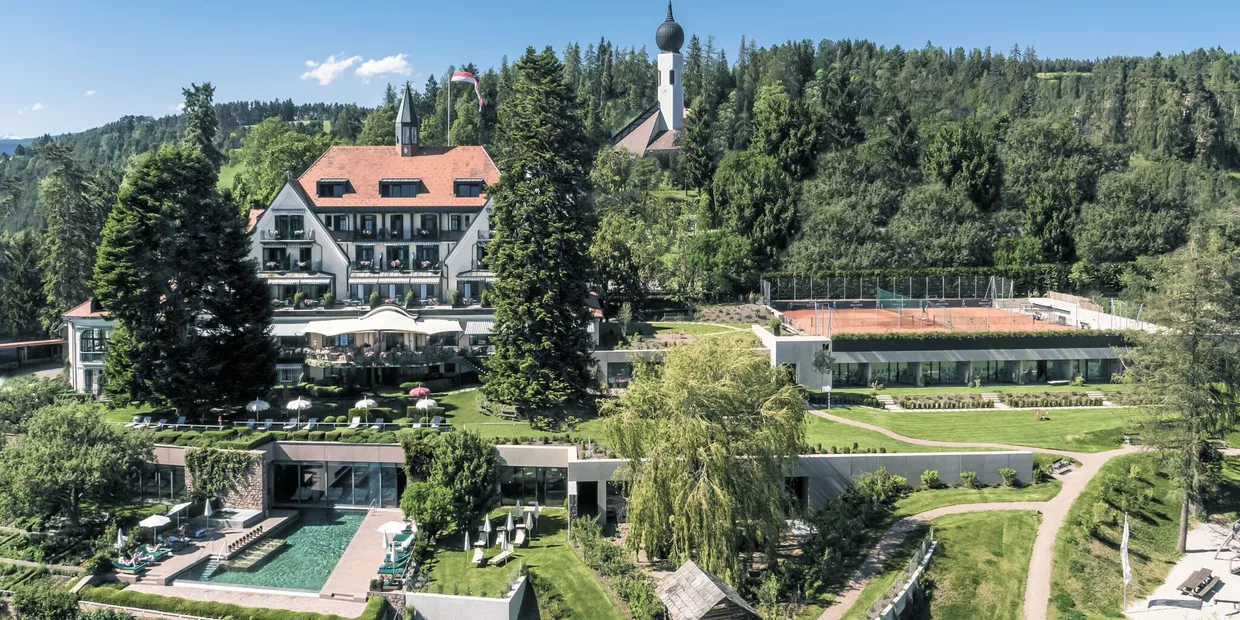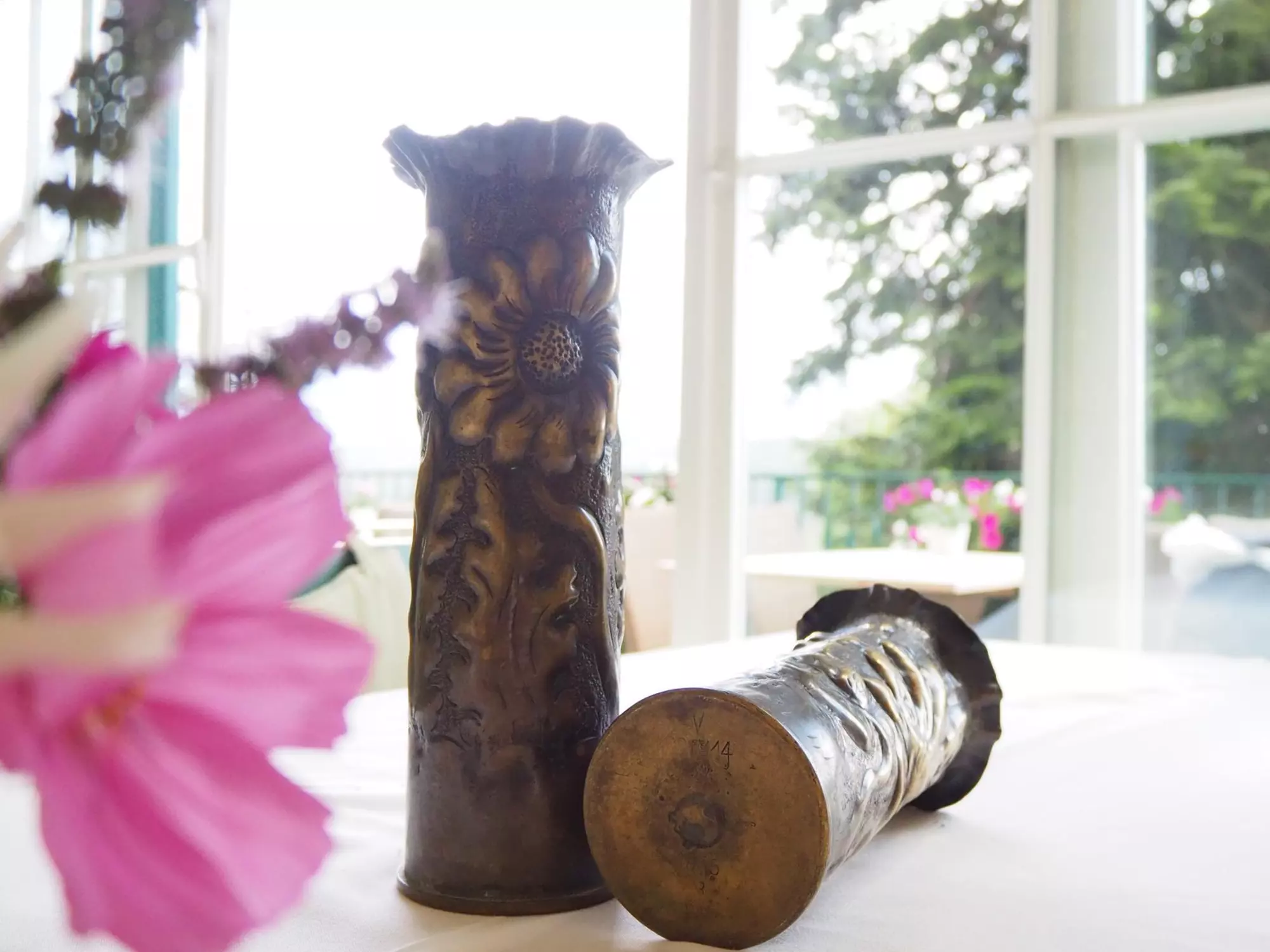In the final years of World War II, Parkhotel Holzner served as the base for an antiaircraft regiment of the German Wehrmacht. Antiaircraft guns were stationed on the Hofer Broat, a big meadow below the hotel. Even after those soldiers were gone, there were still a number of abandoned shells lying scattered around. Well, you didn’t have to ask our ingenious locals twice. One by one, under cover of darkness, the last remnants of the war mysteriously disappeared from the Hofer Broat.

One particularly smart fellow, who was well known in the area, perhaps even a little infamous, was able to scavenge a particularly large quantity of them, which he planned to weld together and refunction for other new and quite different purposes. But what exactly should he do with those large shells, of which he now had several bouncing around in his workshop? They were still intact and sometimes he wasn’t fully at ease working away next to them, in some cases even spraying them with sparks from his welding torch. So, one day he decided to go over and see his old friend Wilhelm Holzner, who had just recently returned from Berlin. As an engineer, he was certain to have an idea of what could be done with those confounded things. And indeed he did. He was intending to build a public outdoor swimming pool for Soprabolzano, below the hotel property. When excavation began, he noticed that the ground was very rocky, interspersed by red quartz porphyry, making work significantly harder. And that’s precisely where the explosive powder from the shells came in, perfect for any blasting that might be needed. That same swimming pool still exists today and, with its breathtaking views of the Dolomites, is one of the most beautiful far and wide.

In the meantime, our skilled craftsman reclaimed possession of the shell casings and created something that made a mockery of their original purpose: He turned them into florally-decorated ornamental vases to hold colorful bouquets of roses, carnations and fragrant lilac. Then he sold them to his engineer-friend Wilhelm at a bargain price. Guests in the hotel dining room can still admire those vases to this day, testimony to how even something so horrible can eventually be transformed into a thing of beauty.







